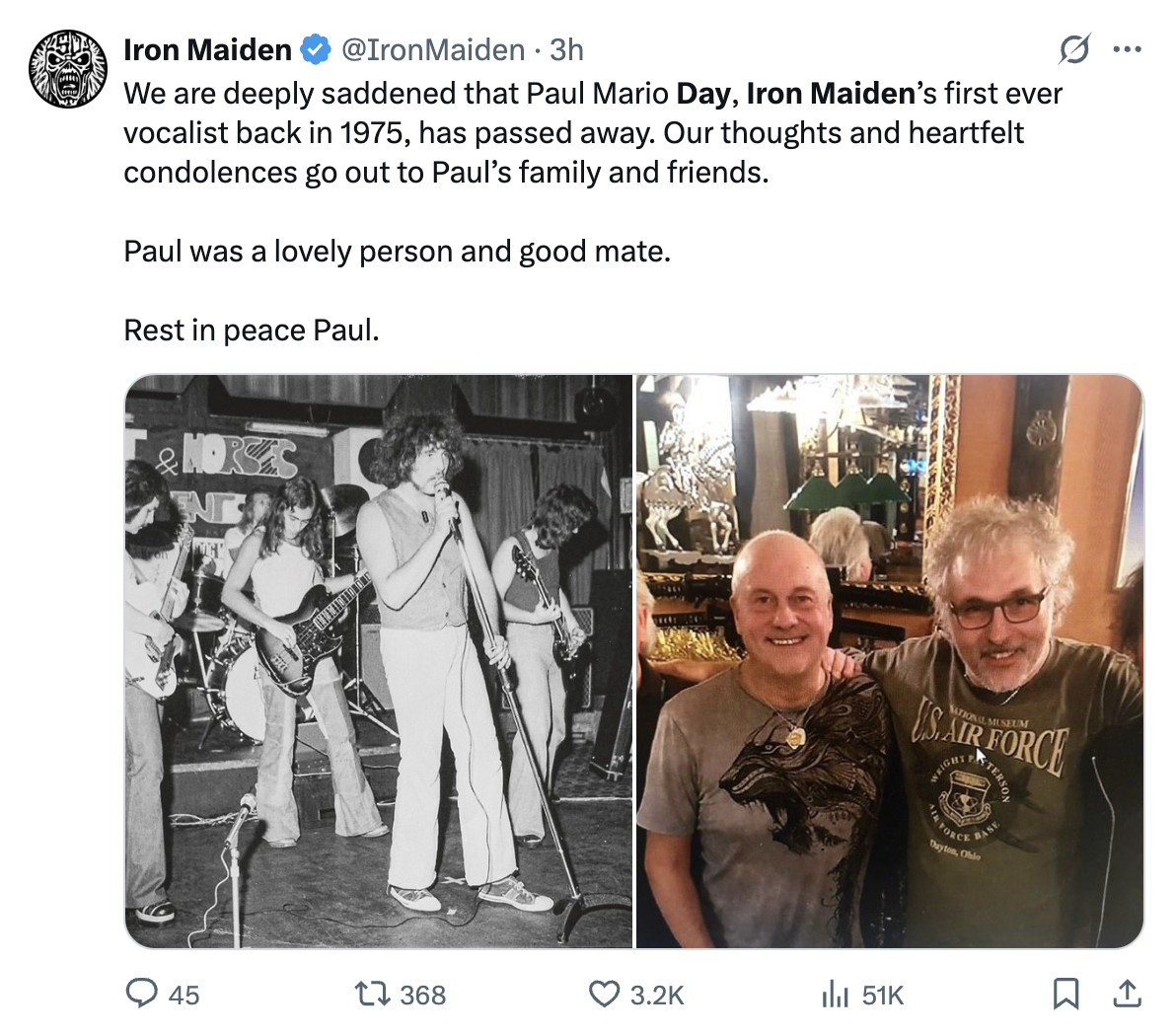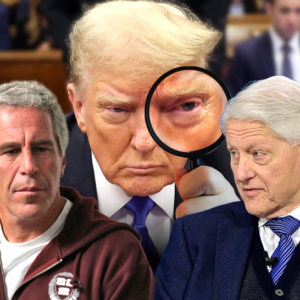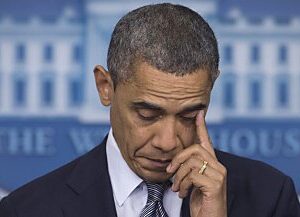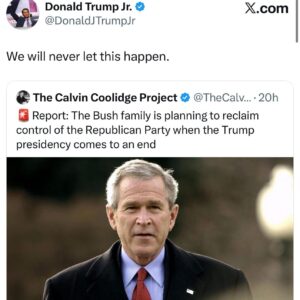British singer Paul Mario Day, best known as the original singer in Iron Maiden, died at 69 this week.
Day was living in Australia, where he died peacefully at his home, according to his family.
Although an official cause of death wasn’t mentioned, Parade previously noted that the rocker had been battling cancer in recent years.
Iron Maiden formed in East London in 1975, when Day joined the band in December at just 19 years old. He was recruited by bassist Steve Harris, the group’s central songwriter.
It wasn’t long before Day became the first of many members to exit the band due to what Harris later claimed was a lack of energy and charisma on stage.
“When I sang in Iron Maiden, it was a new pub band and nobody wanted to see or hear them,” Day recalled in 2019 about his time in the group. “We were all nobodies, all trying to make the best music we could and fighting for an audience.”
Six months after their first session, Day was on stage in May 1976, performing in one of Iron Maiden’s earliest London shows. He was quickly replaced by singer Dennis Wilcock, who also didn’t stick around long before exiting the band.
Iron Maiden’s third vocalist, Paul Di’Anno, stuck around for two albums before quitting, leading to the introduction of longtime frontman Bruce Dickinson.

Day later expressed regret about his time in the group, claiming he was never credited for co-writing the hit track “Strange World” from the group’s eponymous 1980 album.
“Back then we were all pulling for the same side and it still hurts to think the first-ever song I ever composed was on a big-selling album and nobody knows it was me,” he said in 2019.
Day eventually declared he was “finished with” the drama and never pursued legal action.
He later linked up with a new coterie of bandmates to form More in 1980, with the group releasing its debut album “Warhead” the following year.
“We are deeply saddened to learn of the passing of the great More vocalist Paul Mario Day,” his former band More wrote on Facebook, the NY Post reported.
“Paul was a huge part of the NWOBHM from his time in an early version of Iron Maiden, and of course, his fantastic performance on the ‘Warhead’ album.”
“He was a well-loved figure in British rock music and played many memorable shows, not least the legendary 1981 Monsters of Rock show at Castle Donington with AC/DC, Whitesnake/David Coverdale, as well as tours with Iron Maiden, Def Leppard and many other legendary artists,” they added.




